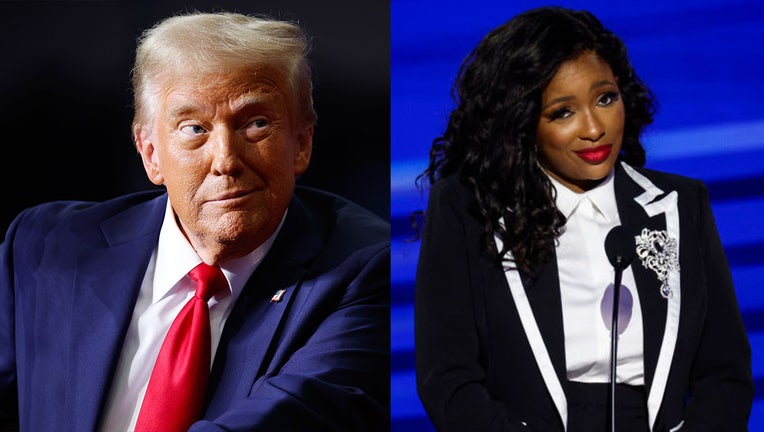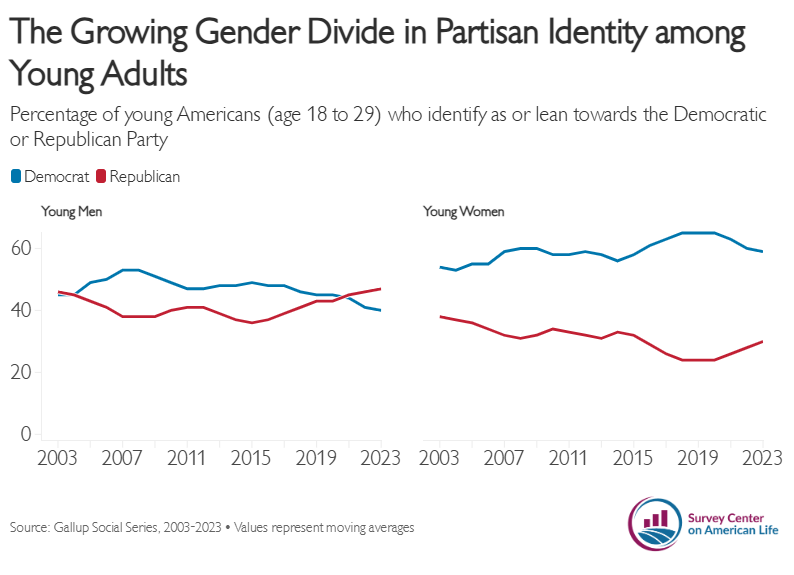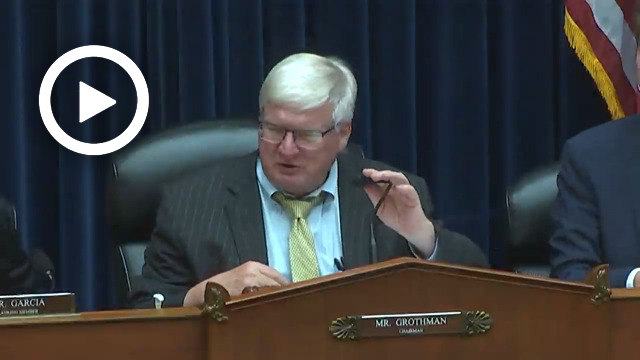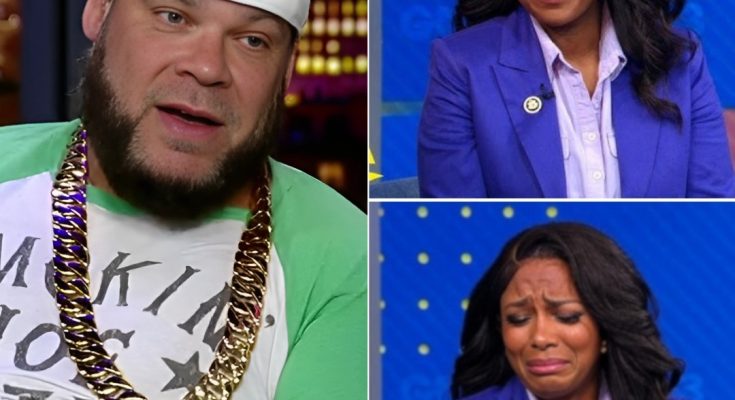SHOCKING MOMENT: Tyrus Crushes Jasmine Crockett on Live TV—Studio Stunned, Crockett Storms Off Stage in Humiliation!
In a jaw-dropping live broadcast, political commentator Tyrus unexpectedly rose as a national hero after completely dismantling Jasmine Crockett in an explosive verbal showdown. Crockett, a rising Democratic figure, was left speechless and visibly humiliated, storming off stage as Tyrus delivered one relentless truth after another, exposing her controversial and insensitive remarks.
What exactly did Tyrus say that caused Crockett’s dramatic exit? Viewers across America are now demanding to know, turning this broadcast into one of the most talked-about television moments of the year.
Controversy Ignites: Crockett’s Shocking Comments Spark Outrage
The storm erupted around Jasmine Crockett after she made racially charged statements connecting immigration issues to historical slavery during a political rally. Her remarks, captured on viral video, stunned attendees and quickly spread nationwide, igniting a wave of backlash across political lines.
“Ain’t none of y’all trying to farm right now,” Crockett said sarcastically, “We done picking cotton.” These comments, suggesting Black Americans would refuse manual labor reminiscent of slavery, provoked nervous laughter and visible discomfort from the crowd. The incident raised serious questions about the current direction and messaging of the Democratic Party.
Identity Politics vs. Real Policy: Democrats at a Crossroads?
Crockett’s controversial remarks spotlight a deeper issue: critics argue that today’s Democratic Party prioritizes identity politics and social-media-driven virtue signaling over substantive policy solutions. Many feel the party’s focus has drifted away from critical issues like inflation, border security, and crime prevention, fueling accusations of performative activism.
This criticism extends to the Biden administration’s border policies, which opponents say have contributed significantly to the immigration crisis. Critics argue that the administration’s “open-door” stance creates chaos, subsequently positioning itself as the solution to a crisis of its own making—a move many see as cynical political manipulation rather than genuine leadership.
Double Standards Exposed: Media Bias Under Fire
The mainstream media’s muted response to Crockett’s inflammatory statements further intensified public frustration. Observers pointed out the glaring double standard, noting similar remarks from conservative figures would have triggered swift and widespread condemnation.
Fox News host Jesse Watters highlighted this inconsistency bluntly, labeling Crockett’s comments outright racist. Watters emphasized the economic consequences of immigration, particularly its impact on blue-collar jobs and wages in vulnerable communities, like Chicago’s South Side. His commentary fueled the already fiery national debate.
Internal Fragmentation: Is the Democratic Party Splintering?
The Crockett controversy arrives amidst growing evidence of division within the Democratic ranks. Prominent figures like Cory Booker, Bernie Sanders, and Alexandria Ocasio-Cortez continue jockeying for influence, often prioritizing public optics over unity or policy coherence. This internal fragmentation risks further alienating voters and weakening the party’s broader appeal.
Accusations of hypocrisy within the party have also surged. Democrats praised Hillary Clinton and Stacey Abrams for contesting election outcomes as courageous, yet conservatives expressing similar concerns are swiftly labeled as threats to democracy. This inconsistency has exacerbated the perception of a credibility crisis within Democratic circles.
A Critical Crossroads: What’s Next for Jasmine Crockett and the Democrats?
Jasmine Crockett’s public fallout symbolizes more than an isolated incident—it’s a critical moment for the Democratic Party. Will party leaders genuinely address the concerns raised by Crockett’s comments, refocus their strategy on tangible policies, and bridge internal divides? Or will they double down on divisive rhetoric, risking further voter alienation?
The party’s response to this controversy could profoundly shape its future direction and electoral prospects. Ultimately, this incident serves as a stark reminder of the pressing need for political authenticity and policy substance in an increasingly polarized America.
Crockett’s Controversial Comments: A Symptom of a Deeper Divide?

Jasmine Crockett, a rising figure in the Democratic Party, has ignited a firestorm of controversy with recent comments deemed racially insensitive. During a rally, Crockett made remarks seemingly connecting the current immigration crisis to historical slavery, leaving many in attendance visibly stunned. This incident, captured on video, quickly went viral, sparking outrage across the political spectrum and raising serious questions about the direction of the Democratic Party.
The core of the controversy stems from Crockett’s attempt to address concerns about immigration and labor. She questioned why Americans were not taking up agricultural jobs, particularly farming, suggesting that only immigrants were willing to do this type of work. She sarcastically stated that “ain’t none of y’all trying to go and farm right now,” and “we done picking cotton,” implying that black Americans were unwilling to engage in manual labor reminiscent of slavery. The audience’s reaction, marked by nervous laughter, underscores the discomfort and shock caused by her comments.
Identity Politics vs. Policy: The Shifting Sands of the Democratic Party

Crockett’s remarks are not isolated incidents. They reflect a broader trend within the Democratic Party towards prioritizing identity politics over concrete policy solutions. Critics argue that many Democratic leaders are more focused on using buzzwords and virtue signaling to gain social media traction than on addressing pressing issues like inflation, border security, and crime. This shift has led to accusations of performative activism, where the appearance of caring about social justice outweighs the actual implementation of effective policies.
This focus on optics, critics argue, is exemplified by the Biden administration’s handling of the border crisis. The administration’s “open door” policies have been blamed for creating a surge in illegal immigration. Instead of taking responsibility, Biden has shifted blame to Congress, demanding new laws to address the problem. This strategy of creating a crisis and then positioning oneself as the solution is seen as manipulative and cynical, designed to appeal to voters’ emotions rather than offering genuine solutions.

Double Standards and Selective Outrage: A Crisis of Credibility?
The handling of Crockett’s comments by the media highlights what many see as a glaring double standard. Critics point out that similar remarks made by conservatives would have been met with immediate and widespread condemnation. However, Crockett’s comments have been largely downplayed or ignored by mainstream media outlets, raising questions about media bias and selective outrage.

Jesse Watters offered a stark assessment of the situation, calling Crockett’s idea of needing immigrants because black Americans “aren’t picking cotton anymore” racist. He argues that immigrants are often taking “good blue-collar jobs” and driving down wages, particularly in areas like the South Side of Chicago. Watters’ perspective emphasizes the real-world consequences of immigration policies and challenges the narrative that immigration is solely a positive force.
The Fragmentation of the Left: A Party in Disarray?

The controversy surrounding Crockett’s comments comes at a time of growing division within the Democratic Party. From Cory Booker’s marathon speeches to Bernie Sanders and AOC’s “political rock band” tour, different factions within the party are vying for attention and influence. This lack of unity, combined with a perceived disconnect from the concerns of average voters, has led to questions about the party’s future.
One of the most striking examples of this fragmentation is the stark contrast between the party’s reaction to criticisms from within and outside its ranks. When Hillary Clinton questioned the results of the 2016 election, she was praised for her bravery. Similarly, Stacey Abrams was celebrated as a fighter for refusing to concede in Georgia. However, when conservatives raise concerns about election integrity, they are immediately labeled as threats to democracy. This inconsistency has fueled accusations of hypocrisy and further eroded trust in the Democratic Party.
Crockett’s Future: A Warning Sign for the Democratic Party?

The Jasmine Crockett situation presents a crucial moment for the Democratic Party. Will they address the concerns raised by her comments and take steps to bridge the growing divide within their ranks? Or will they continue to prioritize identity politics and ignore the needs of ordinary Americans? The answer to this question will likely determine the future of the party and its ability to remain relevant in an increasingly polarized political landscape.
Ultimately, the controversy surrounding Crockett serves as a potent reminder of the challenges facing the Democratic Party. To regain the trust of voters and remain competitive, the party must move beyond divisive rhetoric and focus on developing concrete policies that address the real-world concerns of all Americans.




